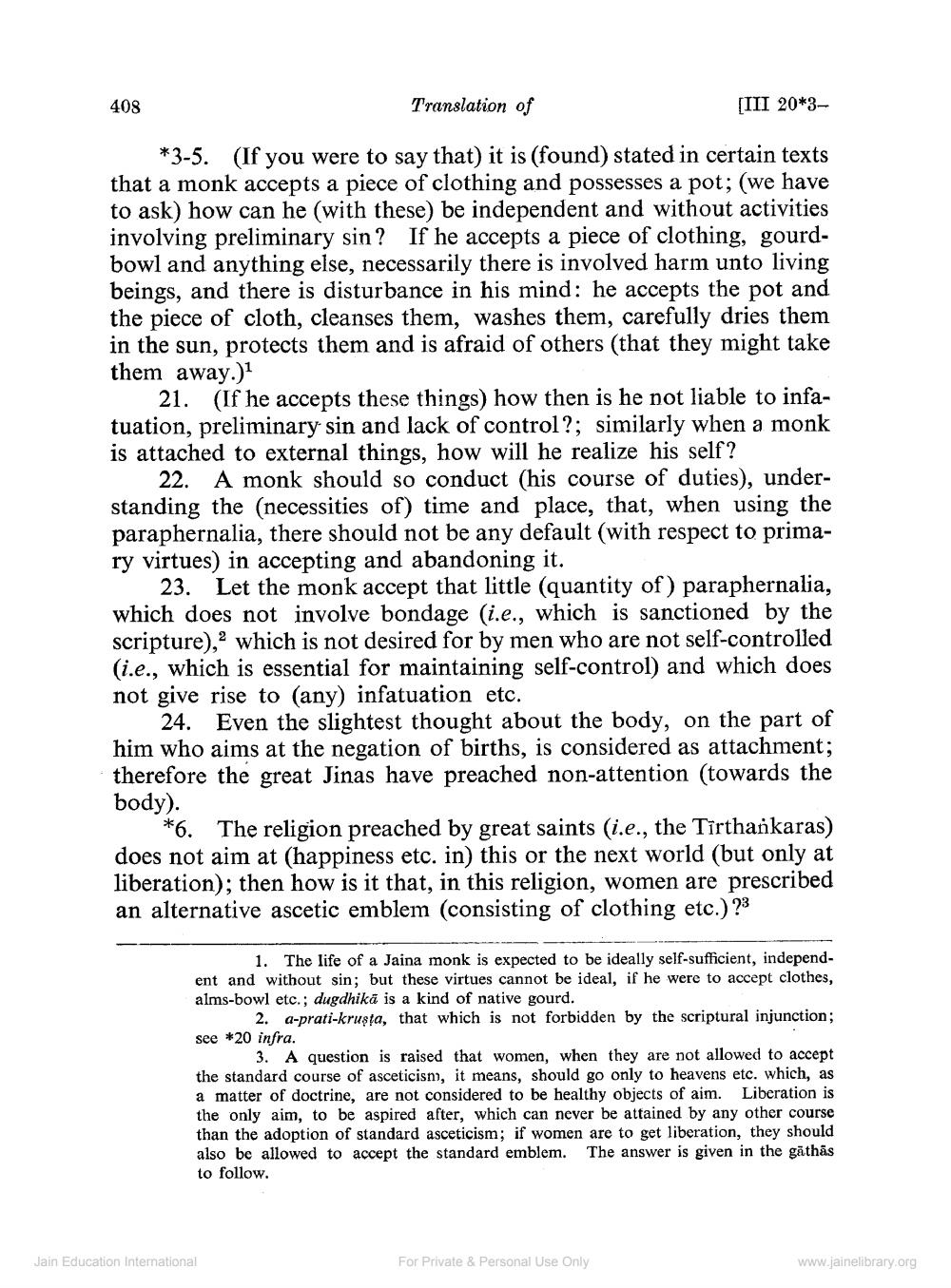________________
408
Translation of
[III 20*3
*3-5. (If you were to say that) it is (found) stated in certain texts that a monk accepts a piece of clothing and possesses a pot; (we have to ask) how can he (with these) be independent and without activities involving preliminary sin ? If he accepts a piece of clothing, gourdbowl and anything else, necessarily there is involved harm unto living beings, and there is disturbance in his mind: he accepts the pot and the piece of cloth, cleanses them, washes them, carefully dries them in the sun, protects them and is afraid of others (that they might take them away.)1
21. (If he accepts these things) how then is he not liable to infatuation, preliminary sin and lack of control?; similarly when a monk is attached to external things, how will he realize his self?
22. A monk should so conduct (his course of duties), understanding the necessities of) time and place, that, when using the paraphernalia, there should not be any default (with respect to primary virtues) in accepting and abandoning it.
23. Let the monk accept that little (quantity of) paraphernalia, which does not involve bondage (i.e., which is sanctioned by the scripture), which is not desired for by men who are not self-controlled (i.e., which is essential for maintaining self-control) and which does not give rise to (any) infatuation etc.
24. Even the slightest thought about the body, on the part of him who aims at the negation of births, is considered as attachment; therefore the great Jinas have preached non-attention (towards the body).
*6. The religion preached by great saints (i.e., the Tîrthankaras) does not aim at (happiness etc. in) this or the next world (but only at liberation); then how is it that, in this religion, women are prescribed an alternative ascetic emblem (consisting of clothing etc.)?3
1. The life of a Jaina monk is expected to be ideally self-sufficient, independent and without sin; but these virtues cannot be ideal, if he were to accept clothes, alms-bowl etc.; dugdhikā is a kind of native gourd.
2. a-prati-krusta, that which is not forbidden by the scriptural injunction; see *20 infra.
3. A question is raised that women, when they are not allowed to accept the standard course of asceticism, it means, should go only to heavens etc. which, as a matter of doctrine, are not considered to be healthy objects of aim. Liberation is the only aim, to be aspired after, which can never be attained by any other course than the adoption of standard asceticism; if women are to get liberation, they should also be allowed to accept the standard emblem. The answer is given in the gathäs to follow.
Jain Education International
For Private & Personal Use Only
www.jainelibrary.org




